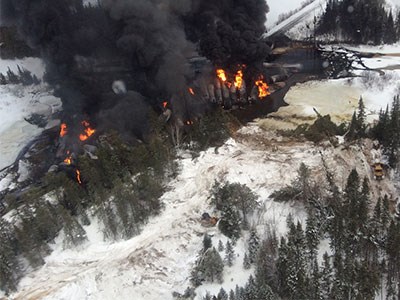A second fiery CN derailment and spillage of oil near Gogama in less than a month has Ontario Regional Chief Stan Beardy calling out Canada’s reliance on fossil fuel and its aging infrastructure.
“As the fifth largest oil producing country in the world and the largest single source of oil imports into the United States, Canada utilizes an aging and climate change affected pipeline and rail transportation network that crosses First Nations territories. We are tired of being pawns in Canada’s addiction to oil,” said Beardy in a March 10 statement.
After a second derailment March 7, 40 kilometres north of the Mattagami First Nation, Beardy said Canada’s methods of shipping oil to market directly conflicts with Indigenous rights and public safety.
While there is cooperation on the ground between Mattagami, CN and both levels of government, Beardy said there are no assurances that the First Nation’s territory “have not suffered irreparable damage.”
The community, 80 kilometres, has endured two derailments and oil spills in as many months. Beardy said residents have been advised to refrain from eating fish from a creek next to the rail line.
“Canada’s transportation policy and regulations on pipelines and railways are putting First Nations and the environment at major risk and are infringing on our ability to exercise our Treaty, and other rights.”
Beardy said no provisions are in place to notify First Nation communities about the transportation of hazardous materials through their traditional lands, which, he said, is “direct contravention of the government’s duty to consult and accommodate First Nations.”




